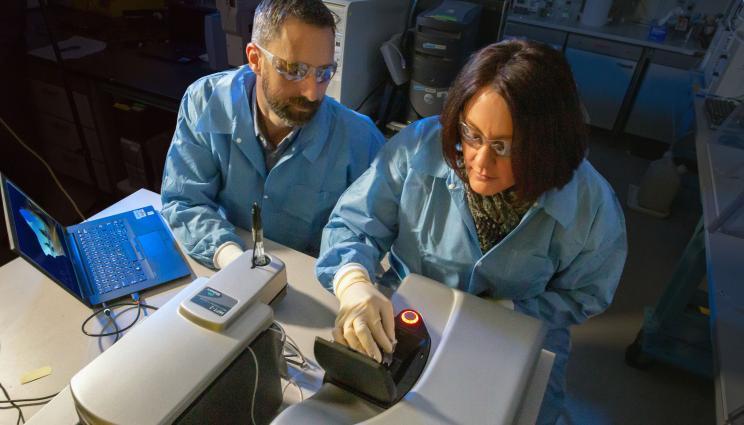
A new partnership between governmental, military, and academic scientists seeks to collaboratively develop a vaccine over the next five years capable of protecting against tularemia, melioidosis, and plague from a single source.
Aided by a $10 million grant for the Defense Threat Reduction Agency, partners include scientists from Lawrence Livermore National Laboratory (LLNL), the University of New Mexico Health Sciences Center (UNMHSC), the University of Nevada, Reno School of Medicine (UNR Med) and the U.S. Army Medical Research Institute of Infectious Diseases (USAMRIID).
“Not only will a simplified immunization regime be cost-effective, it also will enable warfighters to be fully vaccinated more quickly,” Kris Kulp, leader of LLNL’s Biosciences and Biotechnology Division, said. “This project builds on LLNL expertise using nanoparticle technology to deliver vaccines against single pathogens and takes them to the next step by adding antigens that will protect against multiple pathogens simultaneously.”
Already, LLNL scientists have shown the capability to incorporate different antigens from Francisella tularensis bacterium into a single particle to protect against high doses of the tularemia-causing bacteria. Separate efforts at UNR Med and USAMRIID have focused on subunit vaccines for melioidosis and plague, respectively. Now, they want to join forces and resources.
“The development of such a vaccine presents exciting technical challenges associated with understanding the interactions of the vaccine components with each other and with our immune system, as well as in the manufacturing and testing of such vaccine formulations. We are thrilled to be part of this first step in looking at the feasibility of such an approach,” Amy Rasley, LLNL biologist and co-principal investigator, said.
While R&D is ongoing, a vaccine company known as Vaxcyte, Inc. will produce scalable antigens for Yersina pestis and F. tularensi. The team’s scientists will build up nanotechnology developed at LLNL for delivering vaccines and drugs into the human body. These nanolipoprotein particles (NLPs) will serve as the delivery platform for the bacteria antigens, allowing for potential co-delivery through an adjuvant molecule to spur an immune response.




